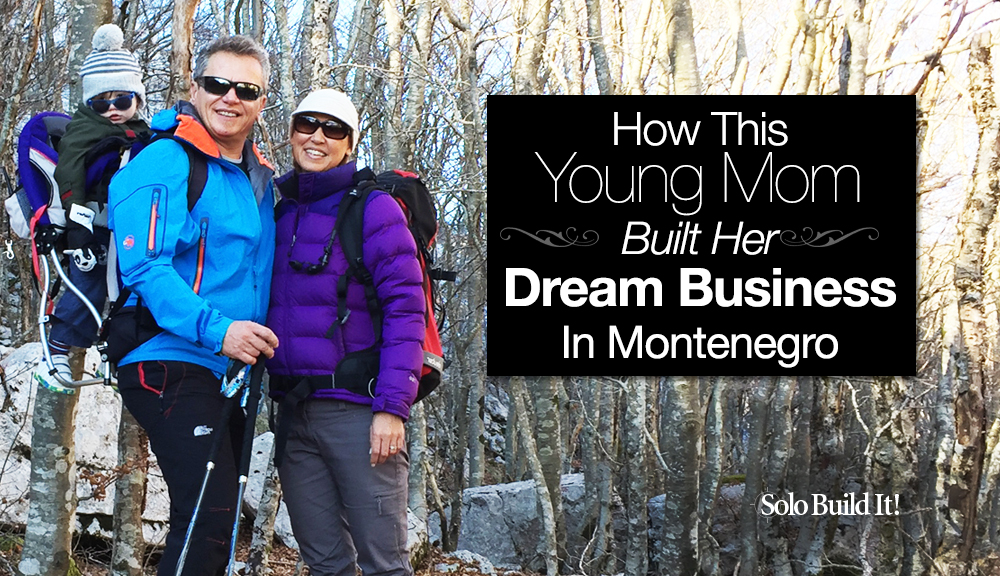
One of the best things about having an online business is feeling like we’re able to give our son a dream childhood.Sarah from montenegropulse.com
Sarah’s first venture into the business world didn’t go so well. She and her husband had bought a franchise in a shopping mall. After several years of working long hours for little return, they realized that, instead of achieving the freedom they had yearned for, they were slaves to the malls and the franchisor.
They pulled out of the franchise, taking a major financial loss. They decided it was time for a fresh start, in a different country. So they relocated to Montenegro, the home country of Sarah’s husband.
While working as a tour operator, Sarah kept her eyes open for another business opportunity. But this time, she wasn’t going to be lured by the promise of “easy money.” She knew exactly what she wanted: a business with low financial risk upfront and a solid income potential long-term.
A business that would give her freedom, location independence and enough free time to spend with her family. In short, she was searching for her dream business.
Did she get that “dream business”? Let’s find out…
1. Sarah, can you share a little about your first venture into the business world? What were some of the challenges you faced and why did you decide to get out of that business?
My first venture into business was buying a franchise — actually two branches of the same franchise. There were lots of challenges:
-
I wasn’t passionate about the business or what I was selling.
-
Two years into the lease I learned the shopping malls would be increasing the rent significantly every two years. After consulting lawyers and appraisers I realised there was nothing I could do and, therefore, essentially had a worthless business.
-
My husband and I worked as many hours as we could to cut costs, which meant we worked all the holidays while our friends and family were out having fun. Christmas falls in summer in New Zealand, so we missed a lot of barbecues and summer holidays because we were working.
-
Because so much of our income depended on Christmas, there was huge pressure on Christmas sales. One year a freak hail storm caused a flood and the mall had to be evacuated.
When we picked up what had been abandoned by the checkout, we had lost over $10,000 in income. That income was supposed to help us keep going for the rest of the year and it was gone in an afternoon.
-
We had no control over the pricing because the prices were set by the franchisor. After our first year it became apparent there were errors in their system that cost us $40,000 on our bottom line, and the franchisor wasn’t willing to fix it.
We decided to get out of the business because we realised that we were working ourselves to the bone for nothing. We were working more hours and earning less money than in regular jobs.
The reason we wanted to have our own business was to have freedom; instead we were slaves first to the malls, then to the franchisor.
And, data from the U.S. Department of Commerce suggests that 95% of franchises are still in business after 5 years.
Those numbers make a pretty strong case for the franchising model. Sarah’s experience, however, paints a different picture. Granted, she admits that she wasn’t passionate about their products.
But even with passion, the other major drawbacks would have still been there: being strangled by the mall’s rising rents, having no control over pricing and having to work insane hours to turn at least some profit.
Running a franchise business can certainly work (otherwise why would so many people do it?). But, if freedom, location independence and low financial risk are high on your priority list, an online business is the better option for you.
2. After that nearly devastating experience, why did you start another business? What did you do differently this time?
After we got out of the franchise (and took a major hit to the pocket), we relocated to my husband’s home country of Montenegro for a fresh start. I got a job with a new tour operator and helped people book holidays in Montenegro. I enjoyed my job, but in the back of my mind I was always looking for another business opportunity.
I started thinking about all the things I wanted in a business:
- Low financial risk
- No hard selling
- Passive income
- Location independence
Honestly, it sounded impossible…but then I discovered Solo Build It! and incredibly, it ticked every box. The Kiwi motto is ‘she’ll be right’ (everything will be alright). This time though, I wasn’t going to be dazzled by the promise of easy money.
If we were going to go into business again I was determined to have a business that enhanced our lifestyle, rather than turning us into miserable robots. I double and triple checked with myself that an online business was what I really wanted before I got started.
And, as the saying goes, “when the student is ready, the teacher will appear.” In Sarah’s case, the “teacher” was SBI!.
So, even if your first (or second) attempt at becoming your own boss fails, don’t give up! Keep looking for the right opportunity for you. Do your research. Don’t fall for the shiny, get-rich-quick promises. Insist on verifiable proof. Once you are satisfied, take the plunge and go all in! Great things will happen, as they did for Sarah.
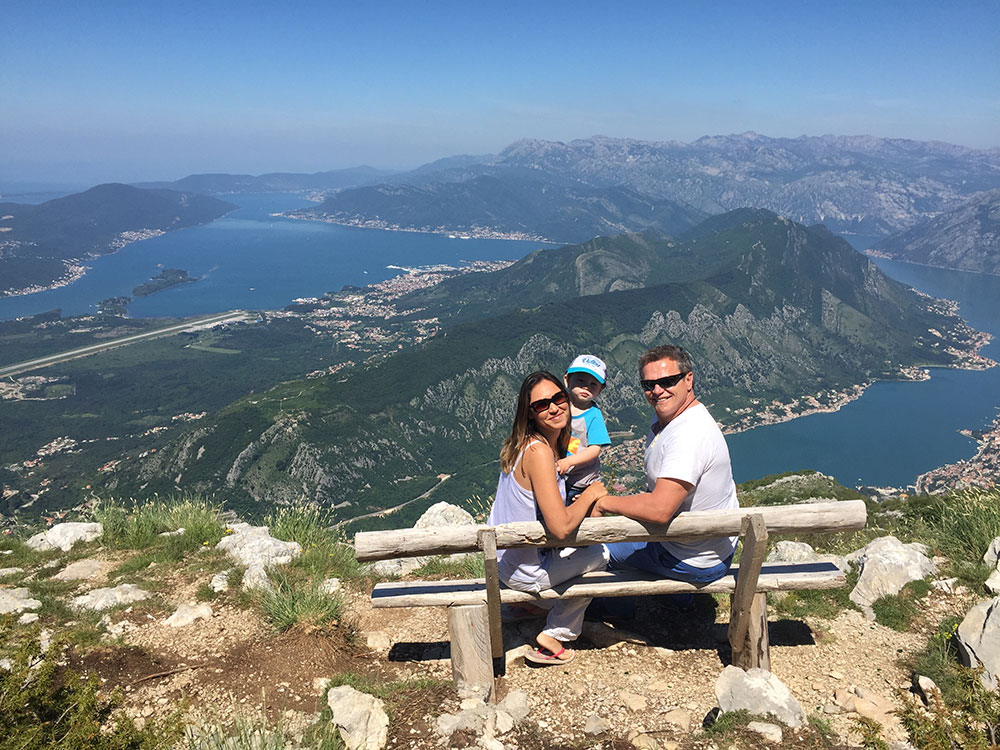
3. How did you decide about your niche? How did you know it was the right topic for you and had great business potential?
Ahhhh Brainstormer, how do I love thee? Let me count the ways…
 I’m going to go out on a limb here and say this is the greatest advantage for us SBIers. The fact that we don’t just randomly start online businesses based on our passions. We build online businesses based on 1) what we know and love, and 2) what we have a good chance of succeeding in.
I’m going to go out on a limb here and say this is the greatest advantage for us SBIers. The fact that we don’t just randomly start online businesses based on our passions. We build online businesses based on 1) what we know and love, and 2) what we have a good chance of succeeding in.
While I was booking holidays in Montenegro, I realised there was a dearth of information about Montenegro online. What was there was written in poor English; a lot of it was irrelevant and a snoozefest to read. I wondered if I could have a business helping more people have an amazing time in Montenegro. When I checked Brainstorm It!, the numbers agreed!
SBI!’s Brainstorm It! tool helped me make sure that I was starting an online business in a niche that I could be successful in. That doesn’t mean it didn’t take effort and work, but it meant that with effort and work there was a good chance I would succeed.
And while travel and cooking are great general areas for an online business, they are far too broad for you, as a solopreneur, to succeed against the “big guys.” You need to carve out just the right size of niche, big enough to be profitable and small enough to be “winnable.”
How do you do that? You research and refine, and research some more. Keyword research plays a big part in determining a niche’s viability. SBI! members like Sarah have access to Brainstorm It!, SBI!’s smart keyword brainstorming and analysis tool.
“Keywords” are simply the words or phrases that people use to search at Google and other engines. Brainstorm It! tells you…
- which keywords (that are related to your niche) people search for
- how often they search for each term
- how many other pages there are about that topic, and
- what the commercial value of those terms is.
Brainstorm It! finds way more search terms than you could ever think up. It shows you which ones make most sense to write about. It helps you determine your idea’s profitability. It guides you in developing your initial content structure and – as your business grows – it helps you discover new topics to write about.
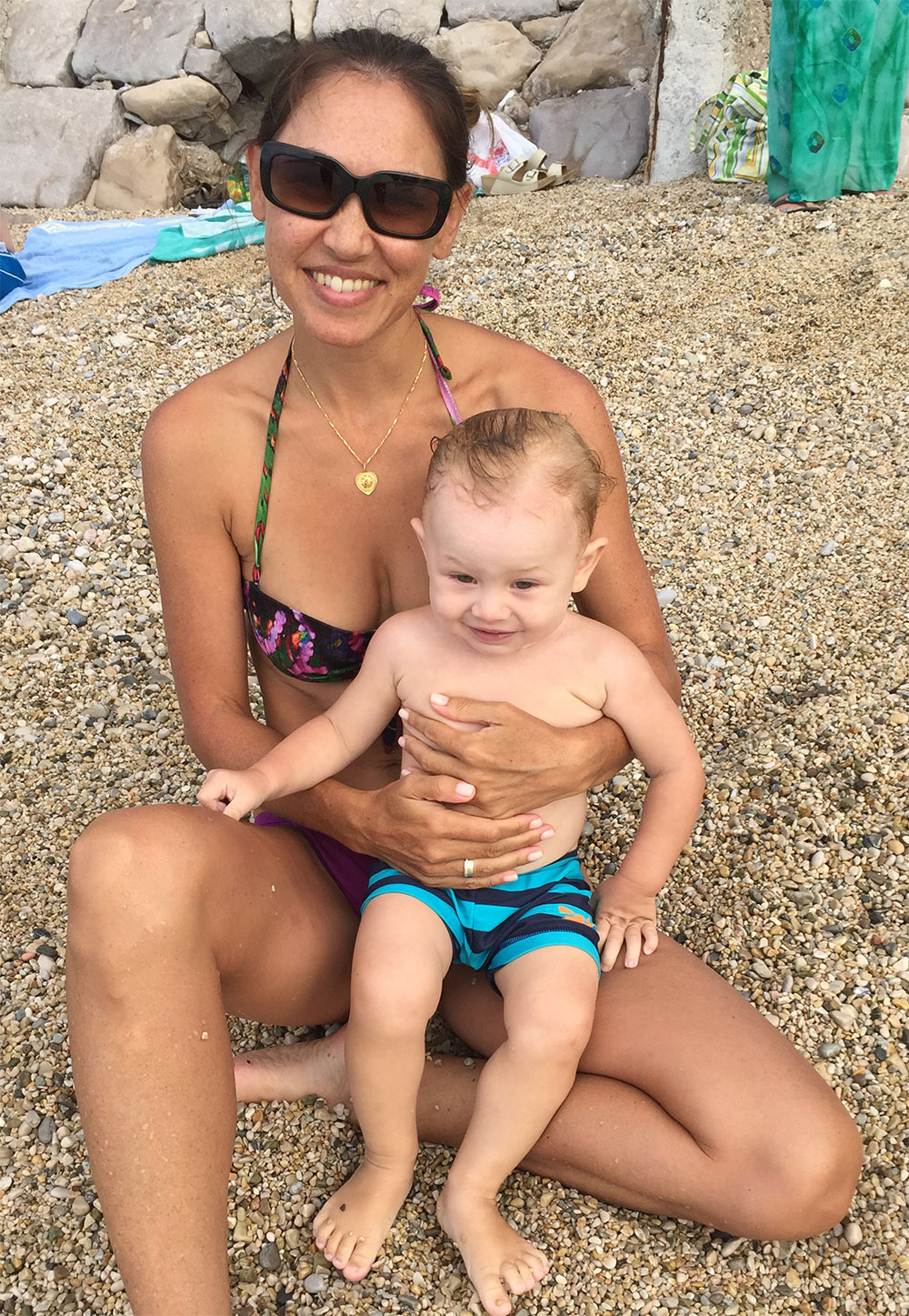
4. Organic search traffic to www.montenegropulse.com has increased considerably since January 2017. What did you do to make this happen?
I did three things:
- I published new pages more often
- I rewrote weak pages and
- I focused on the best social network for my business.
When I reviewed my existing content, I realised how weak a lot of my pages were. They had bad photos and didn’t cover the topic fully. My niche is really visual, so it made sense to source great photos to show my readers how beautiful Montenegro is.
 I also added more relevant information and more personality when I rewrote my pages. I aim to get into my visitor’s head. What do they want to know? What problem are they trying to solve? Once I’ve figured this out, I offer them a solution. Between Brainstorm It! and my years of booking holidays here I have a good understanding of what people are looking for.
I also added more relevant information and more personality when I rewrote my pages. I aim to get into my visitor’s head. What do they want to know? What problem are they trying to solve? Once I’ve figured this out, I offer them a solution. Between Brainstorm It! and my years of booking holidays here I have a good understanding of what people are looking for.
Given my niche is visual, I put a lot of effort into Pinterest. I used great photos to create beautiful pins and started pinning them to some travel-related group boards. I only work two to three hours a day on my online business, so I’m focusing on the social network that I feel is the best for my niche.
How do you produce outstanding content? Sarah mentions three important factors:
- You have first hand experience with the topic you write about (or you researched it really well).
- You put yourself in your visitor’s shoes. When your visitor searches for that keyword you’re writing about, what does she really want to know? What’s her most pressing problem or biggest desire? That’s what you page needs to answer.
- Your content is “uniquely you.” Your writing style, tone and design all work together to create your “brand of one.”
This principle of OVERdelivering is just as important for your social media presence as it is for your website. While search is still by far the largest traffic source for most solopreneurs, social media drives direct traffic too. For some online businesses, especially in the travel niche, Pinterest or Facebook (if done well) can contribute a good amount of highly targeted traffic.
We’ll talk more about which social media channels to choose for your business, and how to use them efficiently, further down.
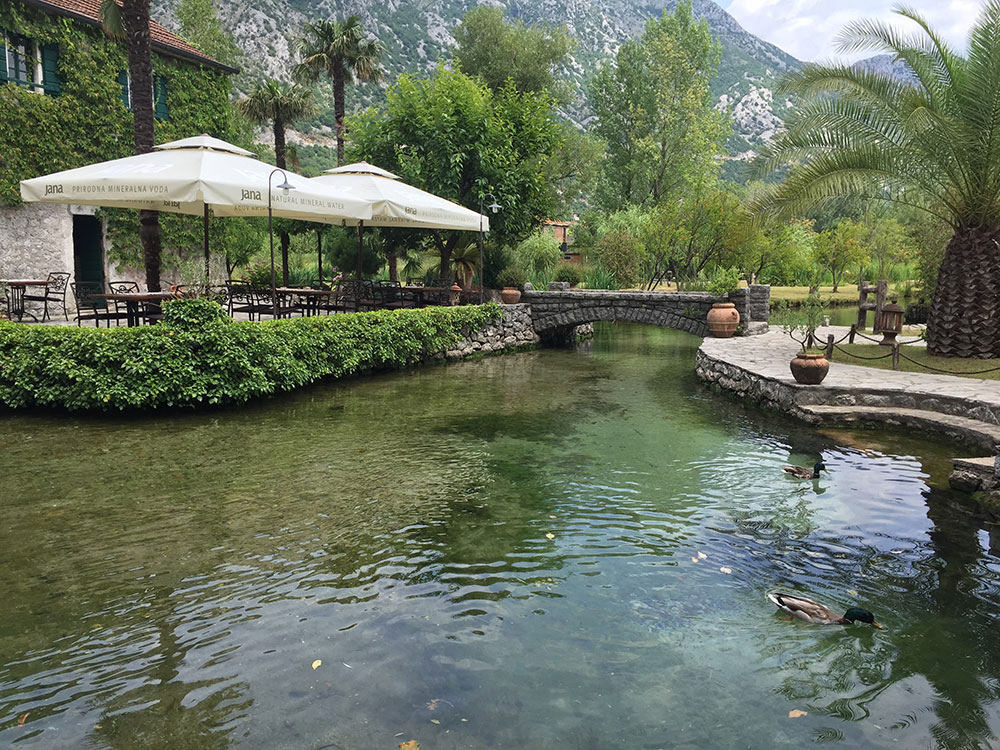
5. You provide lots of information and resources for free. How do you “upgrade” people from being free content seekers to paying customers?
I use affiliate marketing. I connect my visitors with good local businesses offering tours, accommodation, rental cars and anything else people might need on their holiday in Montenegro. Those local businesses give me a commission on bookings.
I work with some partners directly, which I really love because I get to know them well. I know I’m helping my visitors find an awesome experience here and I’m also helping a local business that really deserves it.
Montenegro is old school, everything is done over the phone. So connecting my online audience with my offline partners works extremely well.
I also use affiliate programs like Viator, Get Your Guide and Booking.com. Next year I’ll be creating my own products, mostly guides, to boost my income.
That, in essence, is the beauty of the affiliate concept. It’s even better if you work directly with your merchant partners. Not only do you build a personal relationship with them, but commission rates are most likely higher than when you sign up for one of the “big guys” like Viator or Booking.com.
In Sarah’s case, some of her partners are local businesses who may not even have a website, but are offering exactly what Sarah’s audience is looking for. Referring her visitors to these local businesses is a win-win-win situation for everyone involved.
How did Sarah find those local partners? Well, that was one of the challenges she faced. She explains more about this in her answer to question #8. First, let’s hear whether her online business provides her with a full- or part-time income.
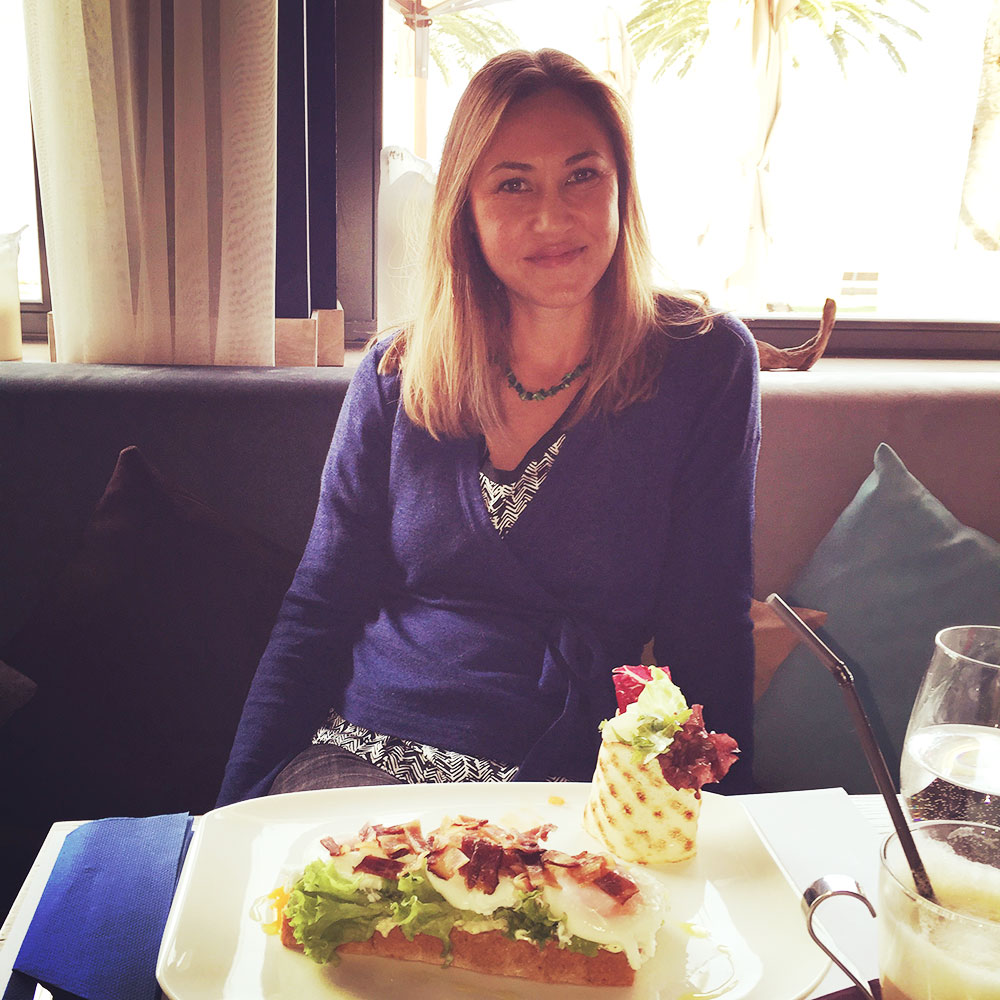
6. How long did it take to start earning income from your online business? Is it a full-time or a part-time income?
It took me about six months to start earning money from my business. I still remember that first payment, it was an amazing feeling. I had validation that my ‘crazy idea’ would really work and I had earned money from something I’d created from scratch.
It took me a while to earning regular income, mainly because Montenegro isn’t really online. When I started there weren’t any online affiliates offering tours here and I had just had a baby, so going out and recruiting partners was difficult. People here don’t email, they want to meet face to face.
Now I’m almost earning a full-time income. I focused on passive income, which is why it’s taken me awhile to get my income level up. At first you work and earn very little, but then the income increases exponentially.
And the great thing is you don’t have to work more to earn more. I expect to be making a good full-time income next year and then — the sky’s the limit!
The crux because you need enough stamina to get over the “hump.” You won’t see income over night. It took Sarah 6 months before she earned her first money. Depending on your niche, and how much time per day / week you put into your business, you may start earning a bit earlier, or a lot later.
On average, 6 months is a good amount of time to calculate as the build-up phase where you see little to no financial return for your work. Once you’ve reached that turning point though, the work – reward ratio reverses. You’ll see more and more income for the same (or even less) amount of work.
Passive income (from monetization models like affiliate marketing, Google AdSense, advertising) gives you the most freedom. Income keeps coming in while you sleep. The downside? Your dollar-per-visitor ratio is limited. Profit potential, especially from AdSense or other contextual advertising, is low.
With enough traffic, you can still make a good income from solely passive monetization. To increase your income, you can add more active models to your monetization mix. Creating and selling your own e-goods (eBooks, digital downloads, online courses) works well for many niches.
Or, you go fully active, for example by selling your own services. At some point, Sarah might decide to offer her own Montenegro tours. Or she might open a bed and breakfast. It’s a question of what you value more: your freedom and location independence, or the level of income from your business.
As an SBI! member, you won’t be alone in that decision-making process. You’ll find help and guidance for every monetization model, from fully passive to fully active.
7. You use social media to promote your online business. How did you decide which platform(s) to use? Why do you think they work best for your niche?
I started with a Facebook Page, but realised that Pinterest is fantastic for travel sites. People come to Pinterest for inspiration. Beautiful pins of holiday destinations certainly fall into that category.
Pins stick around for much longer than posts on other social networks. People are likely to save pins of things they want to come back to later. So if I make a pin about things to do in a town in Montenegro, people see it, pin it and then visit my site when they’re ready to make bookings for their holiday.
Other than Facebook and Pinterest, I post on Instagram and Twitter. I don’t post on them as often, but they’re useful for connecting with local businesses in my niche.
Facebook can work well, too. However, as Sarah points out, Pinterest has the added benefit that people use it specifically to save things to do, try or buy. Saved pins with links to your great articles are easily organized and accessed later.
And it’s not just that Pinterest users want to see pretty pictures. Pinners may go there for inspiration and to plan their dream vacation, but 55% of them are also there to buy. For travel sites that can mean hotels, tours, car hire — even the best flights.
Facebook or Instagram posts, and of course tweets, have a much shorter lifespan than a pin. A pin can still be found after, literally, years.
Sarah touches upon another important use for social media. In addition to building relationships and trust with your potential customers, you can — and should — also use your social media presence to connect with influencers and possible business partners in your niche.
Compared to the offline model of taking business contacts out to dinner and drinks, or 4 hours of golf, it’s a time-efficient way of spreading your name, getting natural links and becoming the go-to person in your niche.
Find out more about the personal use of social in our article, “3 Easy Steps to Building Social Media Relationships.”
8. What has been your biggest challenge so far as a solopreneur?
Oh, there have been plenty of challenges on this journey!
Personally, I tend to jump from task to task and leave things half done. I think a lot of people who start online businesses are like that – it goes hand in hand with the “shiny object syndrome.”
I also had to overcome huge resistance about picking up the phone and cold-calling local businesses I wanted to partner with. What if they laughed at me? Or rejected me? Some did, but I realised it’s not the end of the world. Some of the people I called have turned out to be wonderful partners and friends. I’m glad I screwed up the courage to make those calls.
There’s tremendous personal growth in being a business owner – if you’re willing to face your fears.
How are you supposed to keep up with such a fire-hose of information? And, more importantly, how do you know which advice to follow and which to ignore? You can’t. And with SBI!, you don’t have to.
SBI! provides you with exactly the information you need to know at any given point in time and which action — if any — you have to take to stay current with today’s online business requirements.
To quote one of our customers:
[…] whenever I have a question, I always know exactly where to go to find the answer. That in itself is priceless! It saves me countless wasted hours trying to find reputable answers in the mishmash of useful, garbage, and out-of-date information that’s out there.Erin Dragonsong, www.wicca-spirituality.com
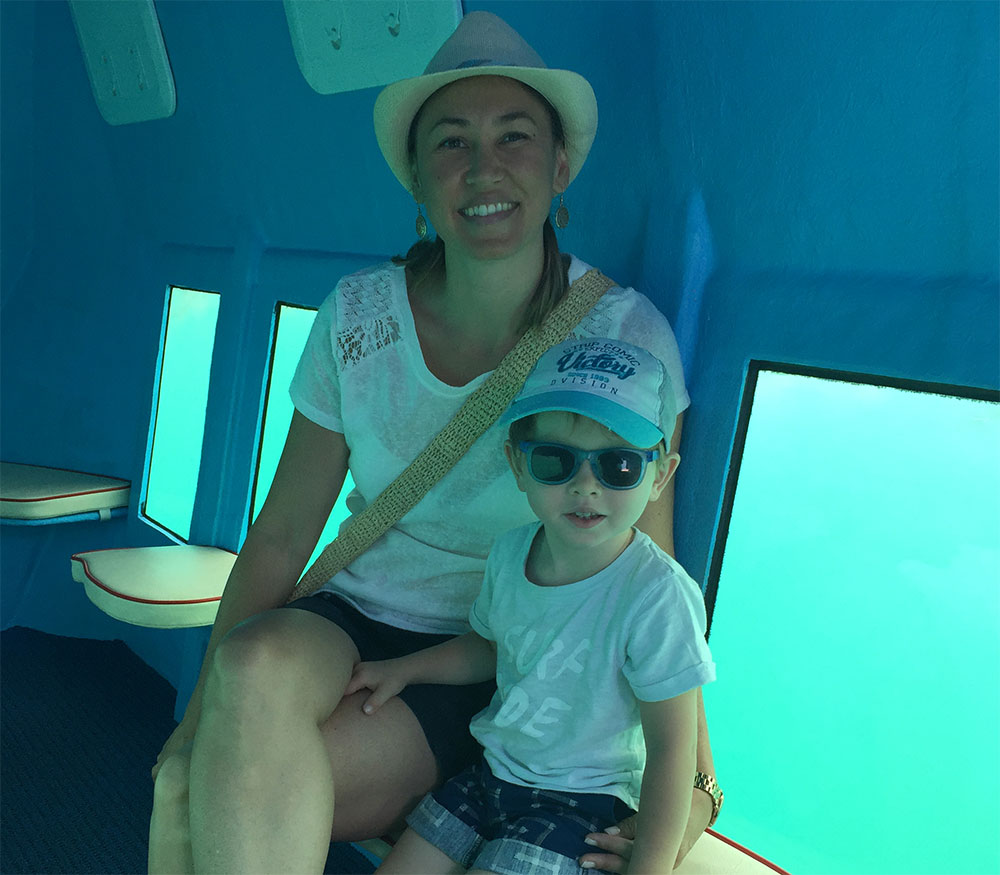
9. What do you enjoy most about being an online business owner? How has it changed you, your life, your family?
Choices. Having an online business has given me choices both personally and professionally. Professionally, I choose when, where and with whom I work. Since I love to travel, I love to explore somewhere new and then I can write about it on my website. It really is my dream business. I also love that I can just shove my laptop in my bag and jump on a plane to join my husband at a yacht show in Monaco or Dusseldorf.
Personally, having the business means we get to choose our lifestyle. Things we thought were impossible before are suddenly options for us. Homeschooling, living where we want — these are choices we can make now. We enjoy more time together, don’t spend our mornings rushing about and generally have a pretty chilled lifestyle.
One of the best things about having an online business is feeling like we’re able to give our son a dream childhood. In summer we spend every morning at the beach, in winter he runs around in the sun with the neighbourhood kids (because it’s sunny here even in winter!).
And he loves coming with me on my ‘research trips’ to check out new boat tours, go kayaking, spend a day in Dubrovnik or go for gelato in Kotor. None of that would be possible if I’d gone back to my 9-5.
Finally, Montenegro has a big stray animal problem and Montenegro Pulse also helps me with with my other passion – animals. I collect donations and donate a percentage of my income to spay and neuter projects. I wouldn’t be able to do this without a high-traffic website.
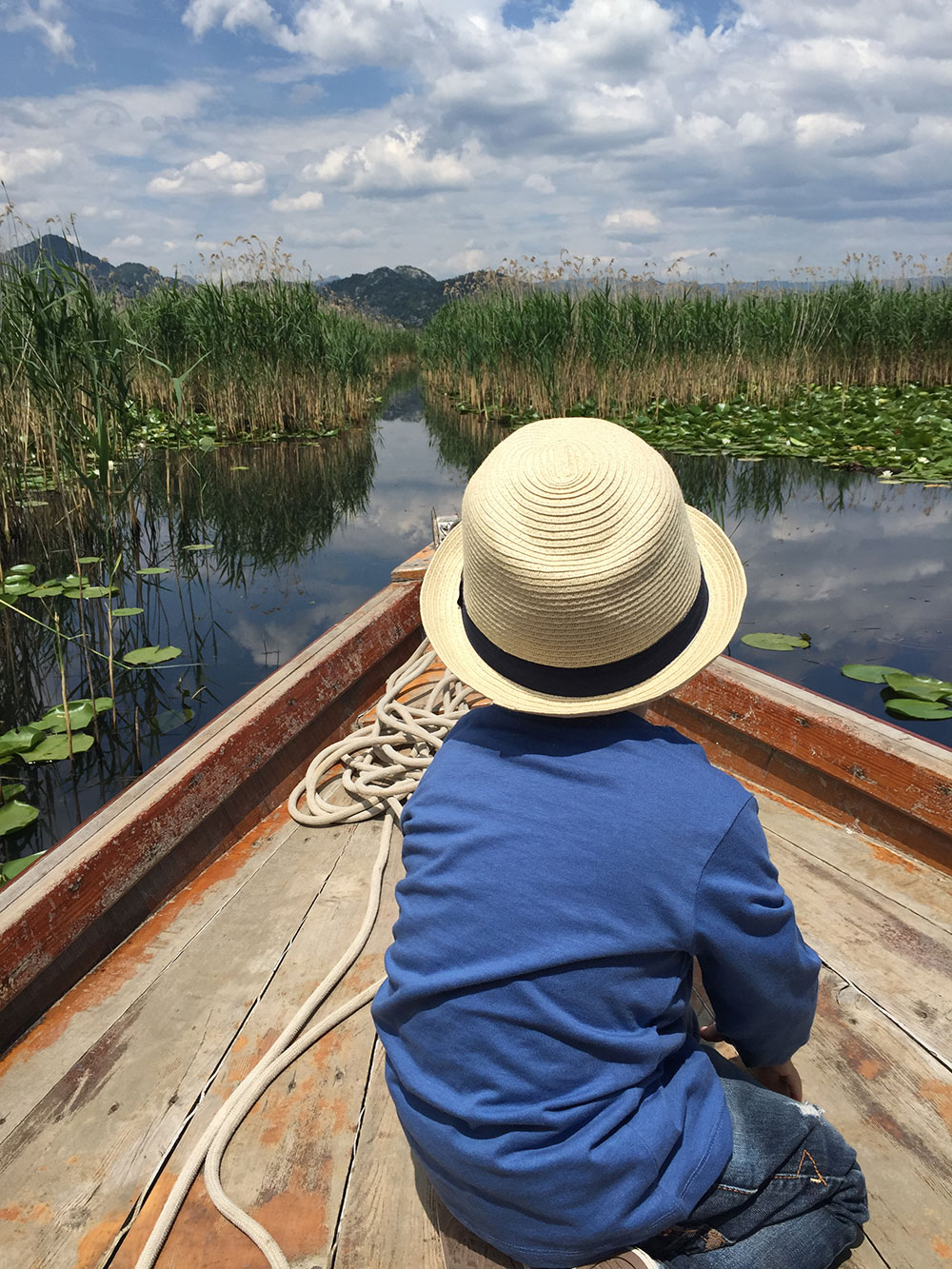
10. And finally… What’s your top tip for someone who is just starting a solopreneur career?
When you start an online business you have to have – or develop! – faith that you can create something most people label as “too good to be true.” Surround yourself with people who are doing what you want to do (the SBI! forums are full of them). Why? Because most of your friends and family won’t get what you’re doing.
Be willing to face your fears. Building your business will require you to step out of your comfort zone at some point. You will face rejection and failure. That’s just part of running a business. Don’t let the fear of failure stop you from trying something.
That’s why Sarah’s advice to surround yourself with like-minded people is so important. In fact, it can make the difference between failure and success. When we asked 50+ of our members in which ways SBI! has contributed most to their success, the SBI! forums and community came in as the second most important factor (just behind the Action Guide).
Are YOU ready to step out of your comfort zone, to achieve the level of freedom that Sarah has found? When you are, we’re here to help.
Browse the SBI! forums, talk to one of our advisors, or sign up and start building your business today (with our 90 day money-back guarantee you have nothing to lose!).
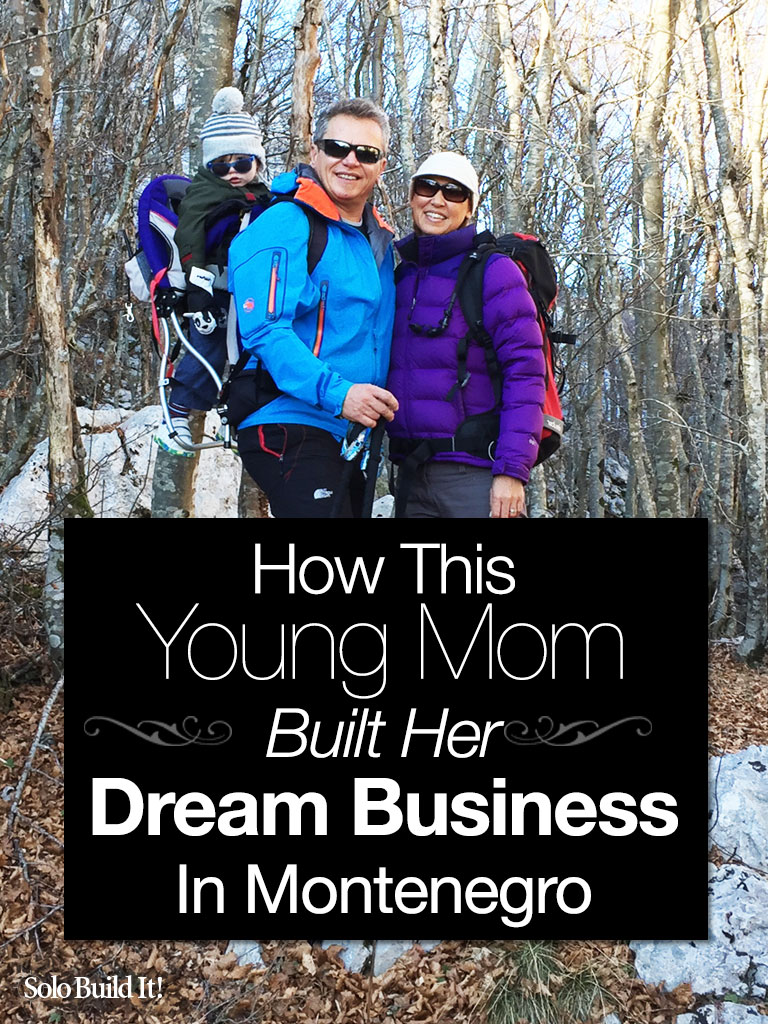
Latest posts by Margit Streifeneder (see all)
- From Zero to 1 Million Fans: A Community-Driven Success Story - October 16, 2025
- Six Figures on Her Terms: A Lifestyle Business Success Story - September 25, 2025
- From Sheds to Sales: A 20-Year Digital Product Success Story - September 11, 2025



